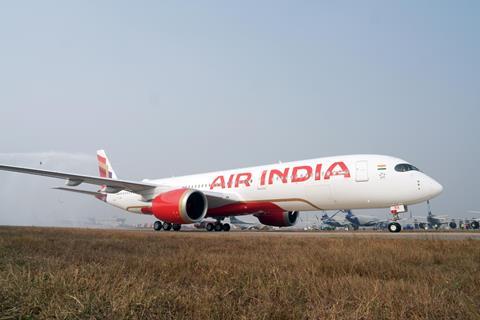Pakistan's airspace closure to Indian Airlines could have a “significant” financial impact on Air India if mutual measures between the two countries stay for longer than a short period of time.
During a roundtable discussion at IATA AGM in Delhi on June 2, Air India CEO Campbell Wilson said that if the closure endured for a year, it estimated that a $600 million hit would have been required and there would have been no mitigation measures.

“Obviously, that fluctuates as we make our own adjustments and mitigations, but that's important,” says Wilson.
He adds that Air India is able to maintain its schedule, but some flights will inevitably be longer.
“Operations mean that flight routes to Europe and North America in particular need to be longer,” he explains. “It takes about an hour longer to Europe, and in some cities it takes up to three hours to North America.
“()In North America, there may be payload restrictions, but we keep most flights non-stop.
“In some cases, we stop refueling stops, but it's so short that the customer experience isn't affected much,” adds Wilson.
As Air India is on a proactive growth path in the wholesale transformation of its business, Wilson remains philosophical about dealing with such headwinds.
“It's a dissatisfaction for everyone involved, but it's one of the things we all deal with in aviation,” he says.
Now focusing on shorter routes than Air India, compatriot Indigo outlined the “relatively limited” operational and economic impacts from tensions in late May, and outlined the resulting airspace closures, but admitted that flights in Central Asia must be suspended, citing a slight increase in some flight times.
Tensions between India and Pakistan rose on April 22 following extremist attacks in Kashmir region.
These tensions have eased somewhat, but the two countries continue to block each other's airlines from flying in their respective airspaces.


